Music and the space it creates for literature
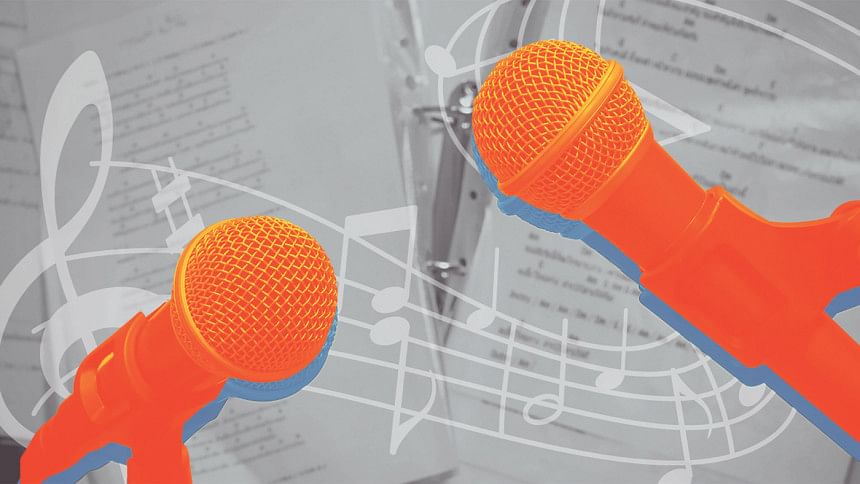
I cannot, for the life of me, definitively describe what makes music. Growing up in a family where music of any form was not typically paid any reverence, my exposure to it was tunnelled into mainstream pop songs for the longest time. The celebration of art and culture in music was a different world, one I was barred from entering by a looming mountain. On my side of the world, music was entertainment, not to be paid attention to for anything resembling linguistic meaning. Of course, sometimes that is the best way to experience music. Other times, however, you begin to realise that the music serves as a space for artists to express themselves not just through sound, but also in their lyricism. Music often exists as a marriage of these two elements, and while sound has little to do with literature, lyricism most certainly is a form of it.
Any song with an arrangement of words does, in fact, have literary elements in it. Whether we liked it enough to take it seriously was not important—most words are literature. Musical artists choose to use this medium to express literature in a way that is not very traditional or linguistic, appealing instead to the auditory senses, but not losing out in the battle to have their words mean something—the 'something' ranging from topical politics to cheesy love songs, was the lyricism not worthy of recognition as literature?
When I first heard the news of Bob Dylan being awarded the Nobel Prize in Literature back in 2016, I did not think much about it. By that time, I had internalised the beauty these words had, the stories they contained layered under instrumentation none of which was any less important than the words that came from the singer. I thought about "Desolation Row"—in fact, I thought quite a lot about the entire album Highway 61 Revisited back then—and I thought about Dylan's imagery. His ability to wring out timelessness and a journey to the abyss and beyond and then back home without missing a beat with nothing but words and a handful of musical instruments, how can anyone deny the claim that it is literature? Not long after did I discover "September on Jessore Road", a song— or rather, a spoken word poem—with Dylan's instrumentation gracing activist Allen Ginsberg's poetry. Here was another example of music and literature coming together in a dance only they could perform. That was a piece composed during the Liberation War of 1971, and so much more had been done in that time to combine lyricism and music by the likes of George Harrison of the Beatles and legendary sitar player, Ravi Shankar. The product of all of their efforts was largely political, after all even the likes of Jean-Paul Sartre liked to argue that literature is inherently political—so why not music?
It is also important to remember that Dylan was not the first songwriter to be awarded a Nobel Prize, Tagore already had one, all the way back in 1913. Poet, lyricist, storyteller, and artist extraordinaire, Rabindranath Tagore exemplifies most clearly the blurry lines literature and music sometimes share. His poetry and lyricism in the Bengali language still stand as incomparably beautiful, with melodies that make us forget whether the words are meant to be sung or read. The space where the ideas of musicality and linguistic beauty converge and the words begin to exist outside of the music—that's where lyricism is at its most sincere.
I think of Kendrick Lamar, of his album To Pimp a Butterfly, and its lyrics laced with allusions to other black writers—Alex Haley, Ralph Ellison, Chinua Achebe, and so many more—who he perhaps shares his struggles with when I say that songwriting as art can sometimes even surpass the music that is meant to accompany it. Kendrick's deep dive into the politics of black communities and the racism faced at a structural and personal level can outshine some of the most renowned modern poems with its lyrical complexity.
Even when they don't come from artists globally renowned, words are powerful, when sung out loud, they wring some deep-seated sorrow out of me. As a huge fan of Iron & Wine, I was pleasantly surprised when a faculty member in a literature course I had once taken in university asked me to analyse the song "Passing Afternoon" as a poem. When presented with the question, 'Can a song be a poem?', they responded immediately with, 'Can it not?'
Words that are used to tell stories, express images, evoke emotion, and carry with them some semblance of meaning, are inherently literary. As I am writing this piece, I am listening to "Sisyphus" by Andrew Bird. Its lyrics are haunting and tell the story of a tired Sisyphus deciding to one day let the rock fall and ruin everything. The lyricism harkens back to the epics of old, when poetry and music were one and the same.
Perhaps in some ways, they still are.
Raian Abedin is a poet, a student of Biochemistry, and a contributor for The Daily Star.

 For all latest news, follow The Daily Star's Google News channel.
For all latest news, follow The Daily Star's Google News channel. 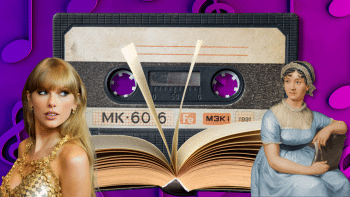
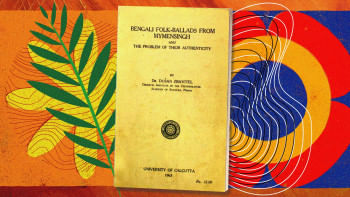




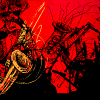
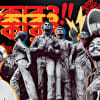




Comments